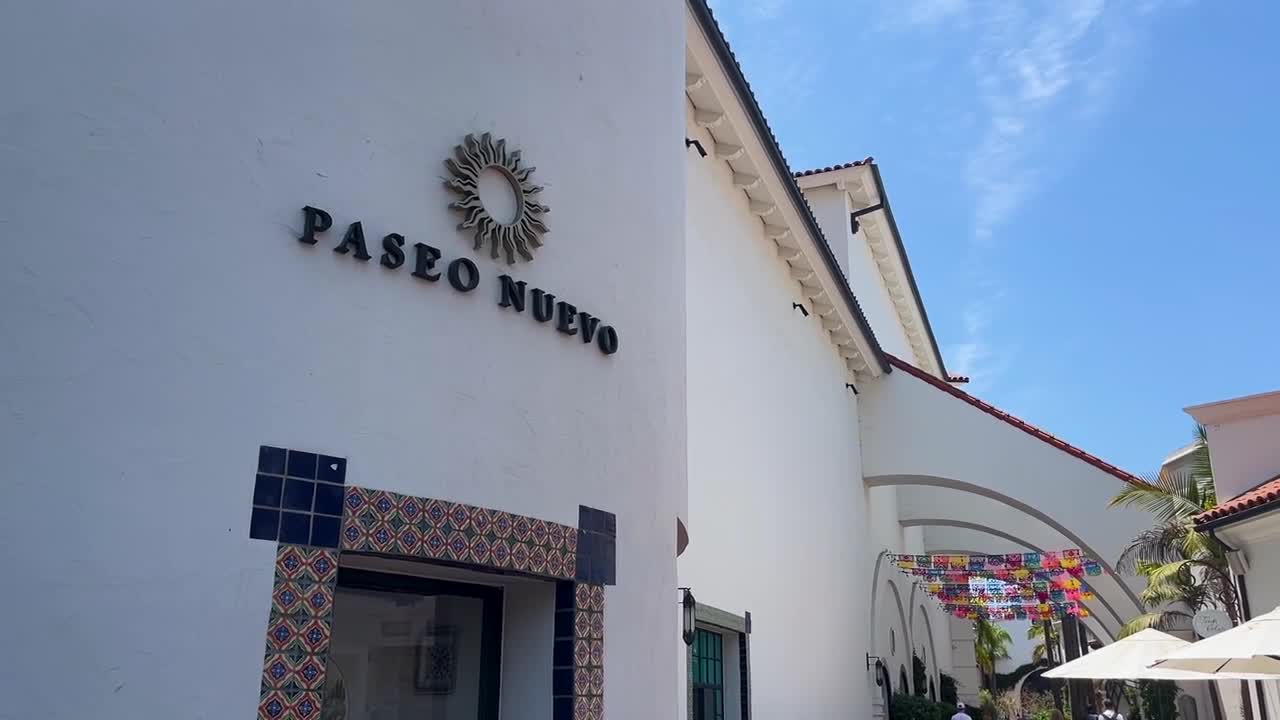The redevelopment of the Paseo Nuevo shopping mall is on the table again as Santa Barbara city leaders aim to transform the downtown area into a retail and residential hub through negotiations with mall owner Alliance Bernstein.
At Tuesday's city council meeting, residents were divided on future plans for Paseo Nuevo.
Michael Ewing, a former retail developer, is looking forward to the change.
"I think it's a great idea to bring residential here and see some of the State Street be repurposed. It's only positive for Santa Barbara," Ewing said.
Resident Steve Scales questioned the viability of the plan, expressing concerns about transportation and how additional development would attract more tourists to the area.
"Unless we look at it like a limited resource that needs to be protected and a balanced solution is in place, it's just going to be a sold-out tourist destination with no soul," Scales said.
City Administrator Kelly McAdoo explained that housing is a top priority for the city right now and that an agreement is the only way to bring units to downtown.
"So right now, housing isn't actually allowed by the reciprocal easement agreement, so we'll need to negotiate the elimination of that agreement," McAdoo explained.
The city’s latest offer would transfer the city-owned land under Paseo Nuevo, valued between $32 million and $38 million, to Alliance Bernstein. In return, the city would collect sales tax from retail and gain 313 units of housing downtown, 80 of which would be for low-income tenants.
"You know, most cities have about 20% of their downtown as residential uses. In Santa Barbara, we only have about 5% of our downtown is residential," McAdoo said.
Previously, the city pushed for a plan that included 500 housing units, but that involved demolishing the entire mall, which was deemed financially unfeasible. The new proposal only requires demolishing the Macy’s building.
McAdoo says current restrictions under the Surplus Land Act leave the city’s land without value, unless combined with AB’s ownership, which would lift state restrictions.
"This is really an opportunity to catalyze redevelopment in downtown," McAdoo said.
In addition to housing, redevelopment would increase retail space to over 175,000 square feet, but reduce parking by 158 spaces, from 1,687 to 1,529. As for AB’s return on investment, it's around 6 ½ percent, a yield well below the market rate of 8 percent.
The new development would stay within the footprint of the existing mall but raise building heights up to 75 feet.
The city council voted unanimously to approve the amendment and direct staff to negotiate a development agreement.




